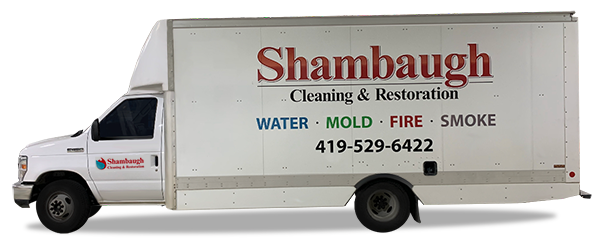Protecting your home and loved ones from fire should be a top priority. Taking preventative measures can significantly reduce the risk of fire damage and injuries in your home. In this section, we will discuss the importance of fire damage prevention and provide you with our top tips to help keep your home and family safe.
Whether it’s a small kitchen fire or an electrical malfunction, fires can occur unexpectedly, and it’s crucial to be prepared. By following our fire damage prevention tips, you can take proactive steps to minimize the risk of fire and increase the chance of a safe escape in an emergency.
Key Takeaways
- Fire damage prevention is essential in keeping your home and family safe
- Implementing preventative measures can significantly reduce the risk of fire damage and injuries
- Being prepared and knowledgeable about common fire hazards and prevention methods is crucial
- Creating a fire-safe environment with working smoke detectors, fire extinguishers, and escape plans is necessary
- Kitchen fire prevention and electrical fire prevention are essential to minimize the risk of fires starting in the home
Understanding Fire Hazards in the Home
Before you can effectively prevent fires in your home, it’s essential to understand the common fire hazards that can put you and your family at risk. By addressing these hazards, you can significantly reduce the likelihood of a home fire and keep your loved ones safe.
Here are some of the most common fire hazards found in homes:
| Fire Hazard | Prevention |
|---|---|
| Electrical appliances and cords | Check electrical appliances and cords regularly for damage, replace damaged cords, and avoid overloading electrical outlets. |
| Candles | Keep candles away from flammable materials, never leave them unattended, and use candle holders that prevent tipping. |
| Heating sources | Keep heating sources, such as space heaters and fireplaces, away from flammable materials and always turn them off before leaving the room or going to sleep. |
| Smoking | Quit smoking or smoke outside, never smoke in bed or near flammable materials, and always properly extinguish cigarettes. |
| Cooking | Never leave cooking food unattended and keep flammable materials, such as oven mitts and dish towels, away from the stove. |
Additional fire hazards to consider:
- Flammable liquids, such as gasoline and cleaning products.
- Combustible materials, such as paper and cardboard.
- Children playing with fire, such as matches and lighters.
- Expired fire extinguishers or smoke detectors.
By identifying potential fire hazards in your home and taking steps to mitigate them, you can significantly reduce the risk of a home fire. Stay safe by implementing effective home fire prevention measures.
Creating a Fire-Safe Environment
Creating a fire-safe environment is essential to prevent the devastating effects of a house fire. Follow these fire prevention measures to help reduce the risk of fire in your home:
- Install smoke detectors: Smoke detectors can provide an early alert to a fire, giving you and your family more time to evacuate safely. Install smoke detectors in every room of your home and test them regularly to ensure they are functioning correctly.
- Invest in fire extinguishers: Fire extinguishers can help put out small fires before they become large and dangerous. Place fire extinguishers in key areas of your home, such as the kitchen and garage, and learn how to use them properly.
- Plan escape routes: In case of a fire, it’s crucial to have an escape plan. Create a detailed plan for each room in your home and make sure every family member understands it. Practice your escape plan regularly.
- Keep flammable materials away: Keep flammable materials like paper, clothing, and cleaning supplies away from heat sources, including stoves, heaters, and cigarettes.
- Maintain electrical appliances: Faulty electrical appliances can cause fires. Make sure to maintain your appliances and replace damaged cords or faulty switches immediately.
By implementing these fire prevention measures, you can create a fire-safe environment in your home. Regularly inspect and maintain your smoke detectors and fire extinguishers, practice your escape plan, and keep flammable materials away from heat sources. Protect your home and family by prioritizing fire safety.
Kitchen Fire Prevention Tips
If you’re like most people, your kitchen is the heart of your home. It’s where you gather to prepare meals and spend time with loved ones. However, the kitchen is also the most common place for home fires to start. By following these kitchen fire prevention tips, you can keep your family and home safe.
Stay in the Kitchen While Cooking
One of the most effective ways to prevent kitchen fires is by staying in the kitchen while cooking. It may be tempting to leave the stove unattended while you take a quick phone call or check on something in another room, but this is a recipe for disaster. Unattended cooking is the leading cause of kitchen fires. If you must leave the kitchen, turn off the heat or ask someone to watch your food while you’re gone.
Keep Flammable Objects Away from Heat Sources
Another important kitchen fire prevention tip is to keep flammable objects like oven mitts, dish towels, and paper towels away from heat sources. It’s easy for these items to accidentally touch a hot surface and catch fire. When cooking on the stove, make sure your sleeves, hair, and any loose clothing are not near any flames or burners.
| Flammable Objects to Keep Away from Heat Sources: | Safer Alternatives: |
|---|---|
| Oven mitts | Silicone oven mitts |
| Dish towels | Paper towels |
| Paper towels | Cloth towels |
Clean Up Grease and Food Residue Regularly
Grease and food residue can build up on your stove and in your oven, increasing the risk of a fire. Be sure to clean up any spills or splatters immediately, and deep-clean your stove and oven regularly to eliminate grease and buildup. If you have a gas stove, make sure the burners are clean and free of debris to prevent flare-ups.
Have a Fire Extinguisher On Hand
Even with the best prevention measures, accidents can still happen. It’s essential to have a working fire extinguisher in or near your kitchen. Make sure you and your family members know how to use the extinguisher in case of an emergency.
In conclusion, kitchen fires are preventable with a little care and attention. By staying in the kitchen while cooking, keeping flammable objects away from heat sources, cleaning up regularly, and having a fire extinguisher on hand, you can reduce the risk of a fire in your home. Stay safe while enjoying your time in the kitchen!
Electrical Fire Prevention Measures
Electrical fires are a common cause of home fires, but fortunately, they can be prevented with proper precautions. Here are some electrical fire prevention tips to help keep your home safe:
- Have your electrical system inspected and maintained regularly: Faulty wiring is a significant cause of electrical fires. Hire a licensed electrician to inspect your system at least once every ten years to ensure that it is up to code and functioning safely.
- Pay attention to warning signs: If you notice flickering lights, frequent power outages, or circuit breakers that trip often, it could be a sign of an overloaded circuit or faulty wiring. Take immediate action and consult with an electrician to fix the problem to prevent an electrical fire from starting.
- Avoid overloading circuits: Plugging too many devices or appliances into one outlet or power strip creates a fire hazard. Spread your electrical devices across several electrical outlets and circuits instead.
- Use appliances safely: Always follow the manufacturer’s instructions for safe use of appliances. Never use frayed or damaged cords or wires, and unplug appliances when not in use.
- Use surge protectors: Surge protectors protect your electrical devices from electrical surges and prevent fires. Be sure to choose a surge protector with an automatic shutoff to prevent it from being overloaded.
By following these electrical fire prevention measures, you can significantly reduce the risk of an electrical fire in your home. Stay vigilant and take action to ensure your electrical system is safe and functioning correctly.
Conclusion
In conclusion, you now have a better understanding of fire damage prevention and the importance of taking steps to keep your home and family safe. Remember to always be aware of potential fire hazards and take action to mitigate them.
Creating a fire-safe environment with smoke detectors, fire extinguishers, and escape plans is vital. Additionally, practicing safe cooking habits and being cautious with electrical appliances and outlets can significantly reduce the risk of fires.
By following the fire damage prevention tips provided in this article, you can prioritize fire safety and protect your home and loved ones. Stay safe!
FAQ
What are some common fire hazards found in homes?
Common fire hazards in homes include faulty wiring, flammable materials, unattended candles, overloaded electrical outlets, and improper use of heating appliances.
How can I create a fire-safe environment?
Creating a fire-safe environment involves installing smoke detectors, having fire extinguishers readily available, developing and practicing escape plans, and regularly maintaining these safety measures.
What are some kitchen fire prevention tips?
To prevent kitchen fires, ensure that you never leave cooking unattended, keep flammable objects away from heat sources, regularly clean grease buildup, and familiarize yourself with how to properly use a fire extinguisher.
What electrical fire prevention measures should I take?
Electrical fire prevention measures include hiring a professional electrician for regular inspections, avoiding overloaded circuits, using surge protectors, and promptly addressing any electrical issues such as flickering lights or sparking outlets.






